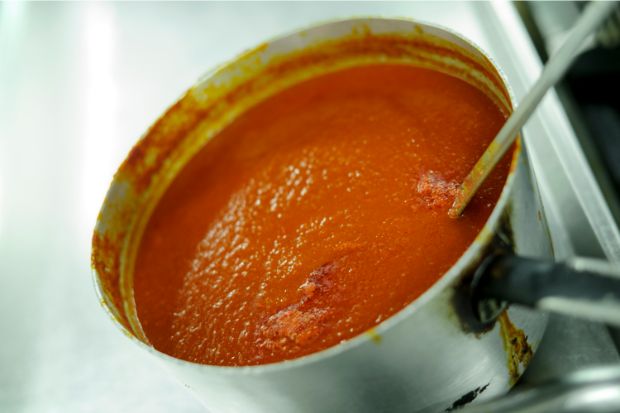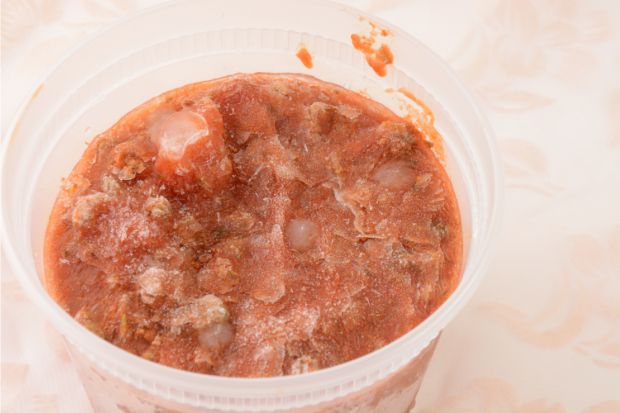Mold on tomato sauce or tomato paste is commonplace in many kitchens, but how dangerous is this really? Do you need to throw out your tomato sauce or paste just because it has a little mold on top?
Moldy tomato sauce is not likely to be unsafe for you, but you’re still much better off not taking a chance. There are many ways to save tomato products that decrease the likelihood of mold forming and coming into contact with the food. Most of them are very simple and not at all time-consuming.
How Big of a Problem Is Mold?

The truth is, most mold on your tomato products is benign, so if you notice mold on tomato sauce that has recently been stored in the refrigerator, chances are it’s nothing for you to worry about. In fact, many people think they can scoop out the mold from the top of the sauce and eat what’s underneath it. But most experts agree that it’s better not to do this. Even though the chance of the sauce or paste having unsafe mold in it is slight, that is still too big of a risk to take for a lot of people.
The problem is that mold grows fast, and every time the tomato sauce or paste is exposed to oxygen—such as when you remove it from your fridge and go to heat it up—the chance of it growing mold increases. While it’s kept in the refrigerator, the cold temperature will slow down the growth of mold. As soon as you take it out of the fridge and open the jar or can, mold can start to grow there. In essence, this means you’re in a race against time, which is why other methods of saving leftover sauce are highly recommended.
What To Do With Your Tomato Sauce or Paste

Most experts agree that instead of placing leftover tomato sauce or paste in the refrigerator, you should freeze it. For sauce, you can simply put the leftovers in a resealable freezer bag, and you can put various amounts of leftover tomato sauce in those bags, depending on how often you believe you’ll be using the sauce. For paste, you can try placing dollops of paste onto wax paper, then freeze the wax paper in freezer bags, taking it out of the freezer only as you need it.
As you can see, sauce and paste can be stored differently in the freezer, but you should always use an approved freezer-type bag or container so that the food is safe while staying frozen.
Some people have had luck spraying the top of the open can of tomato sauce or paste with a baking spray or olive oil spray. This can create a barrier that prevents or at least inhibits the growth of mold on top of the sauce. This means the sauce is more likely to last at least a little bit longer.
Most experts agree that freezing tomato sauce and tomato paste is the best option. Fresh tomato products should always be used immediately or put in the freezer as soon as you’re done using them the first time. You can also buy tomato paste in tube form so that you use only what is needed.
The important thing to remember is to not keep used tomato sauces in the refrigerator any longer than necessary, so you don’t end up with potentially bad tomato sauce in the first place.
